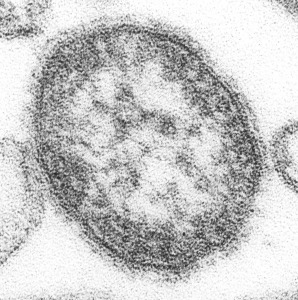If you can’t quite remember whether you had the mumps or you don’t recall every vaccine you’ve received up until now, an all-in-one solution is entering the medical scene.
A recent study reveals you can find out about every virus that’s ever invaded your body and every vaccine that’s been injected into you with one tiny drop of blood, thanks to a new test called VirScan.
This is groundbreaking, as one test can potentially provide a near full viral scan for each patient at an extremely affordable price---an estimated $25 person.
Developed by multiple scientists from eight institutions, including the Howard Hughes Medical Institute and Harvard, VirScan (systematic viral epitope scanning) is able to analyze a patient’s blood drop for current infections as well as infections that are no longer present in your body.
According to the study published in the journal Science, the crux of the operation revolves around patients’ antibodies, which are proteins produced by plasma cells that help fight off pathogens like viruses and bacteria.
The antibodies are exposed to a library of harmless viruses that are disguised human attacking viruses like the flu, HIV, etc. The disguised viruses are used as bait to attract the corresponding antibodies. Once that happens, the VirScan process identifies which viruses were attacked by the matching antibodies and allows scientists to get a full picture of your viral history, up until present day.
In the study, VirScan was used on 569 people from America, Peru, Thailand and South Africa. An average of 10 virus species were found in participants. Americans typically had a lower number of viruses than those in other countries. Patients with HIV had a higher number of antibodies than those who weren’t infected with the virus.
Your body will continue to make antibodies for a virus even if it has been decades since the virus last lived inside of you. VirScan looks for antibodies for 206 virus species that infect humans.
VirScan connects the antibodies to peptides in a process that results in exposing the viruses that a person’s immune system has encountered.
It takes scientists just three days to process 100 blood samples with this method.
It is also noted that while there a large number of viruses VirScan can test for, there are a number of viruses that may not get detected. The technology is brand new, and tends to let smaller viruses like the norovirus, go undetected.
Also, with so many lesser viral strains for viruses including HIV, Herpes and Hepatitis C, it will take some time for VirScan to detect everything, but Ben Larman, a Johns Hopkins scientist who helped design the test, says future research should be able to address these issues.
For more information on Virscan, read details of the story here: http://www.sciencemag.org/content/348/6239/aaa0698
Additional Links:
http://www.popularmechanics.com/science/health/a15882/blood-test-virus-history/

